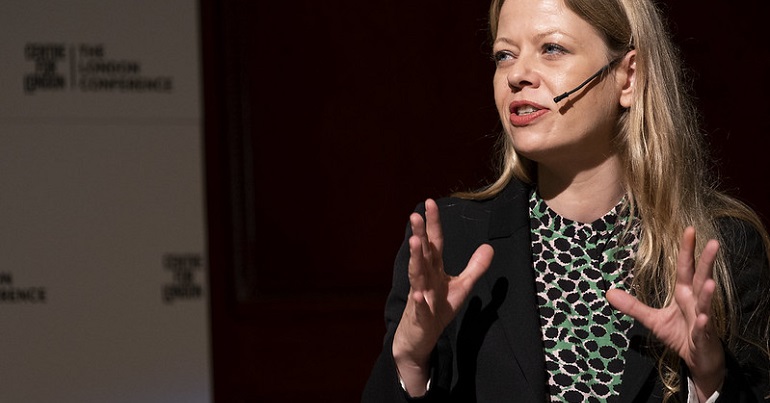Miller Mentality – the price of everything, the value of nothing
Yesterday, in her first public speech 7 months after she was appointed as the Culture Secretary, Maria Miller said British culture should be seen as a commodity. Whilst we waited on how she pledged to ‘fight culture’s corner’, she demanded the arts demonstrate its economic impact. Discussing the arts’ economic impact is nothing new; we have been continuously defending its benefits in community, literacy, diversity and social enhancement. What is unsettling in Miller’s speech is that all these are quietly ignored, and what she really wants are hard numbers. Except Miller’s colleague, Arts Minister Ed Vaizey, has already made that case in a keynote speech made just over a month ago on 7th March where he stated that,
Every £1 spent by local authorities on the arts brings in an extra £3.83 of additional funding.
Thanks Ed for the numbers.
Now there is nothing wrong with holding publicly funded arts institutions accountable for where the money is being spent; in fact, it is a must. What is of concern is the way in which Miller has treated Arts Funding as her very own Dragon’s Den. Perhaps she fancies herself as Duncan Bannatyne. Let’s for a moment consider the absurdity of Miller’s demand that ‘arts must make an economic claim’. Now replace the word ‘arts’ with something entirely immeasurable in monetary terms – ‘Love must make an economic claim’. No, ‘love’ does not receive government funding, I understand, but what I am trying to show is treating ‘love’ as a mere transaction devalues the very sense of it. The same can be said of the arts.
To move away from the abstract, Radio 4 pointed out that no commercial producers wanted to touch theatre shows Warhorse or One Man Two Guvnors; deemed not economically viable. Yet Nick Hytner, artistic director of the subsidised National Theatre, took a risk. There may initially have been a few sharp intakes of breaths, nervous side glances perhaps from the Arts Council, but even they understand that it’s not all about money and you cannot overlook these shows’ commercial success.
They are still playing to sell out houses in the West End, have transferred to Broadway and many incarnations of them are or will be touring nationally and internationally. If I’m not mistaken, a savvy businessperson would call them the cash cows of the National Theatre. Somewhere, in the Dragons’ Den of commercial theatres, Cameron Mackintosh is probably is kicking himself. So much so that another NT masterpiece, The Curious Incident of the Dog in the Nighttime, is now a co-production with a commercial theatre where they also recognise creative potential.
In the play #Aiww The Arrest of Ai Wei Wei, currently playing at Hampstead Theatre until 18th May, whilst being interrogated by his captors on the value of his artwork, actor Benedict Wong as Ai Wei Wei says,
The art is in what happened to those people’s spirits. Their personalities. It is their changing consciousness that interests me.
Art’s anthropological impact is immeasurable and unquantifiable; it engages, challenges status quo and encourages new potentials to be sought from risk taking. Perhaps the speakers at the Oxford Literary Festival say it best:
What is the Value of Art? from Bleeding Heart Films on Vimeo.
Miller’s sales pitch has also drawn this statement from Harriet Harman MP, Labour’s Deputy Leader and Shadow Culture, Media and Sport Secretary,
If Maria Miller is going to try to convert her Chancellor and Treasury colleagues to the economic value of the arts and creative industries to jobs and growth, she will have our strong backing. Arts are suffering under this Government’s cuts at local as well as central government level and the Government must think again.
But she needs to persuade her Education Secretary as well, that for the sake of all children and the future of arts and creativity in this country, arts must be at the heart of the curriculum.
And she needs to promote the fact that arts and creativity is about much more than the economy: they’re about a sense of identity, of community and the potential of each and every individual.
All the theatre shows I have mentioned employ a huge amount of people in the sector which in itself already tick an economic box, but what of the rest of arts’ impact beyond market forces? It seems that we cannot avoid the cuts but we will continue to produce work by surpassing market economics, because quite frankly, Miss Miller, this (transcript of Maria Miller’s full speech) feels nothing like you are fighting culture’s corner.



Art is what develops the mankind. Without it, we would still be living in caves. Don’t underestimate its power.
Arts are extremely important for the prosperity of humans. But they’ve been always underrated.
Easy Christian Songs to Play on guitar ChordsMany times,
we run out of the sound of Santana’s 1999album should be more familiar.